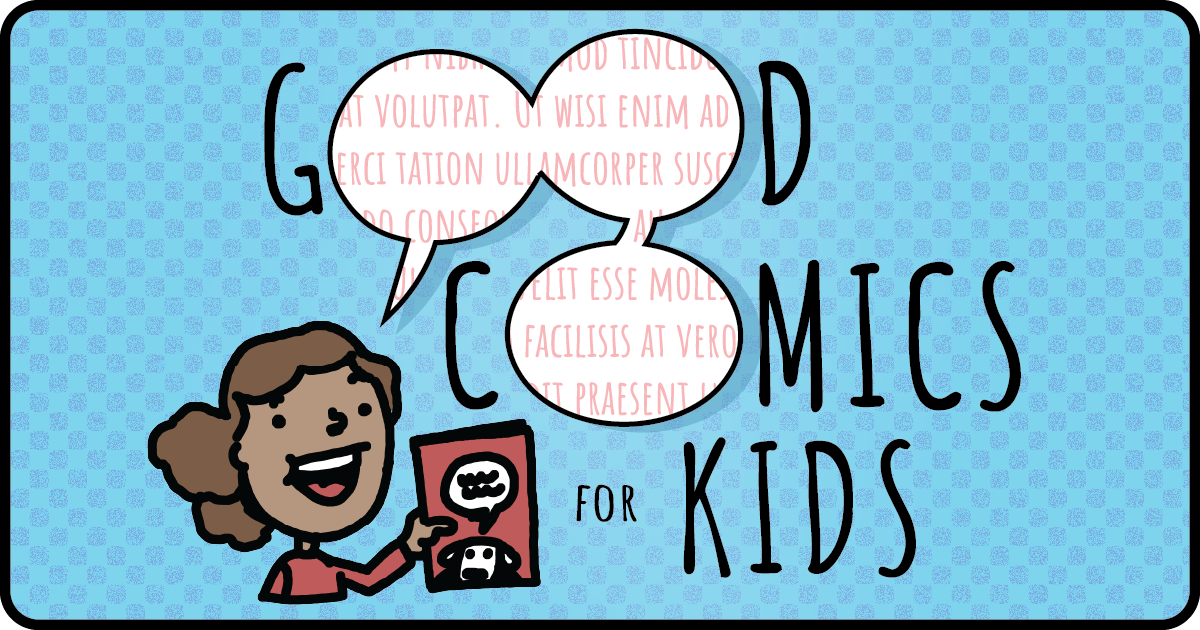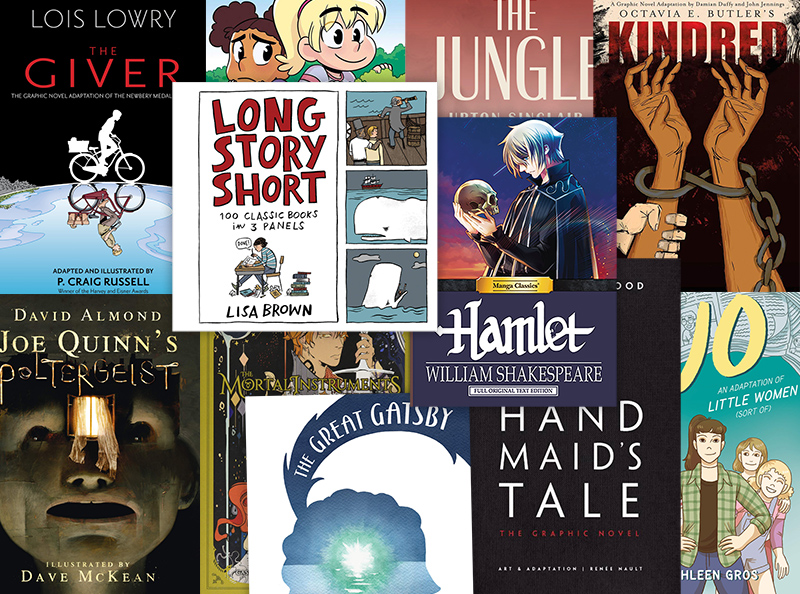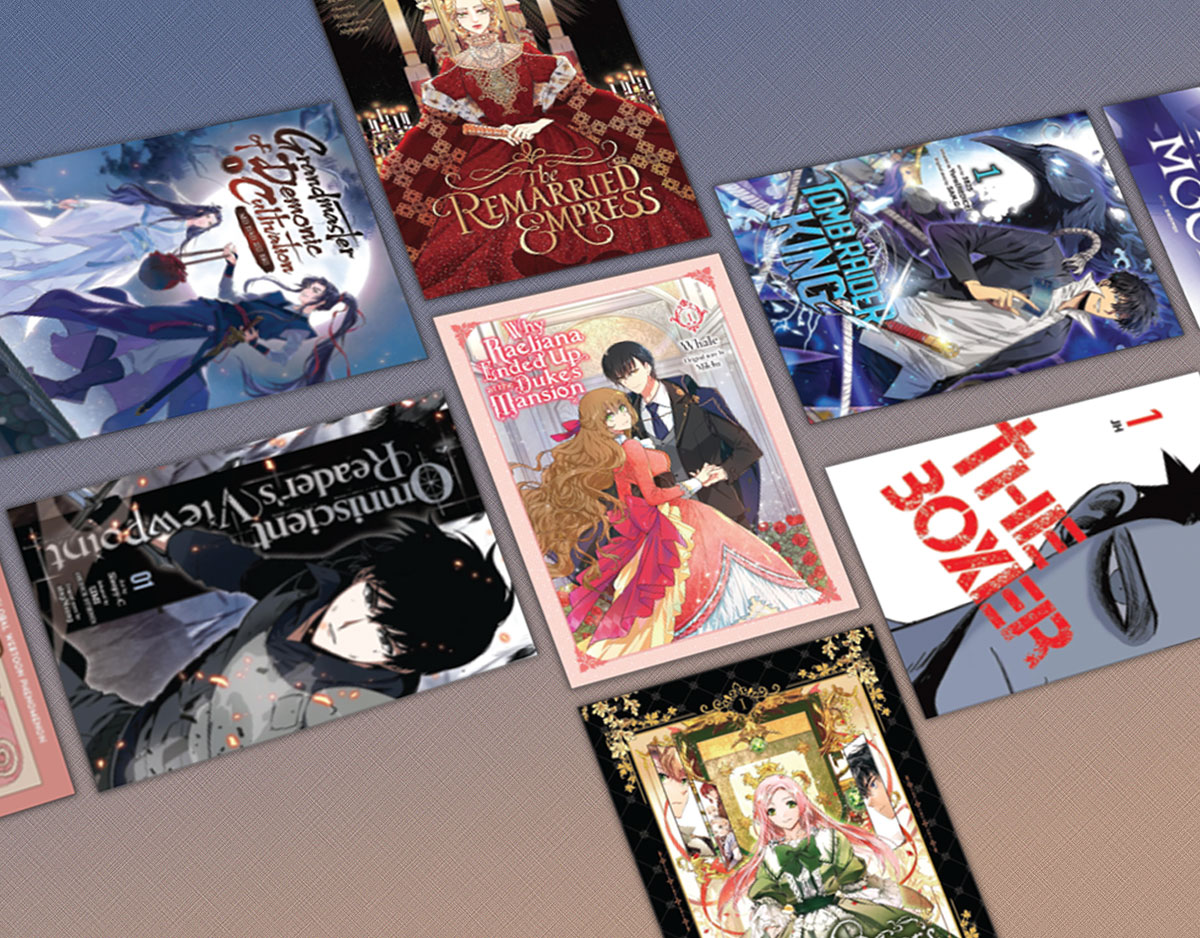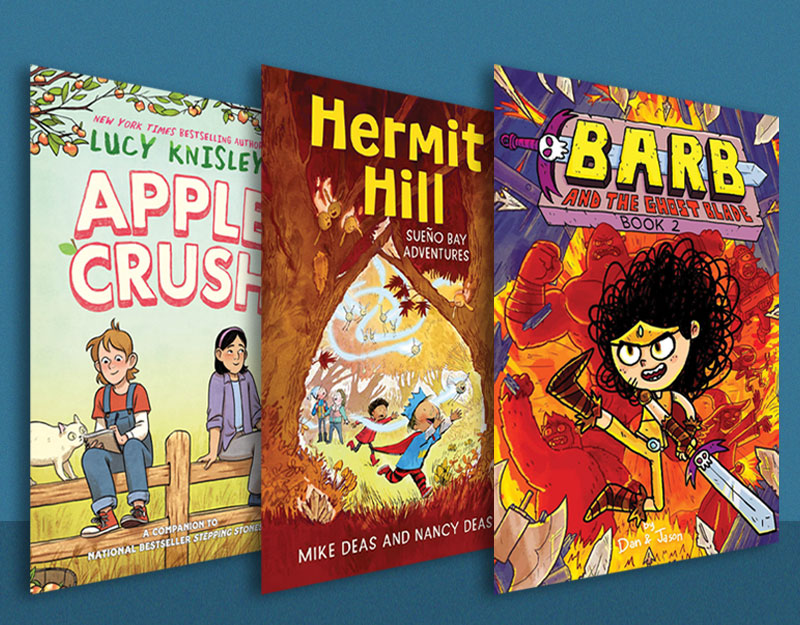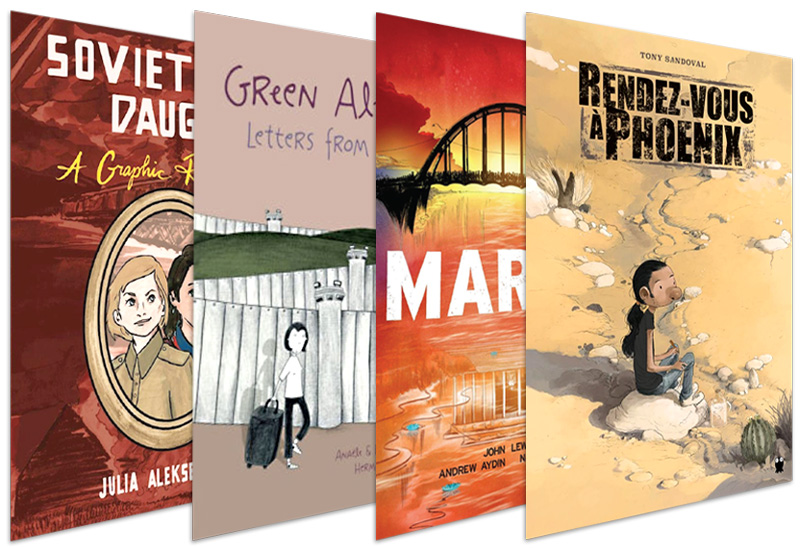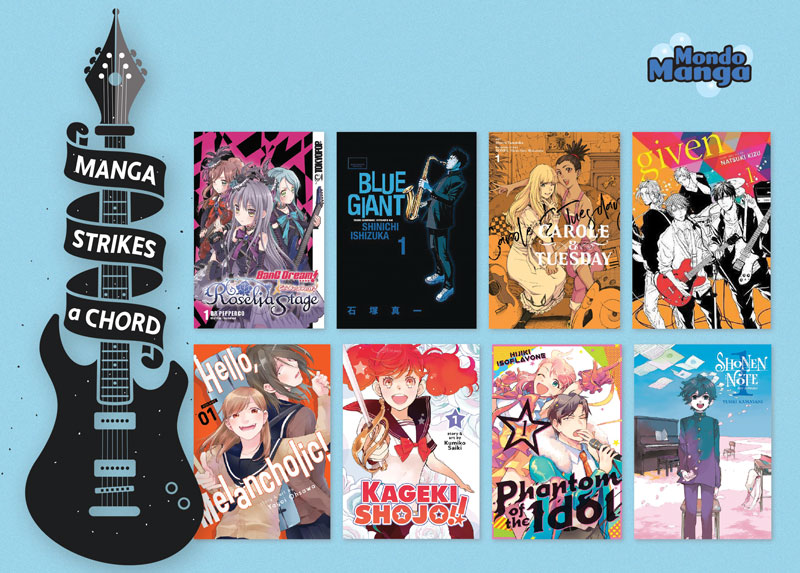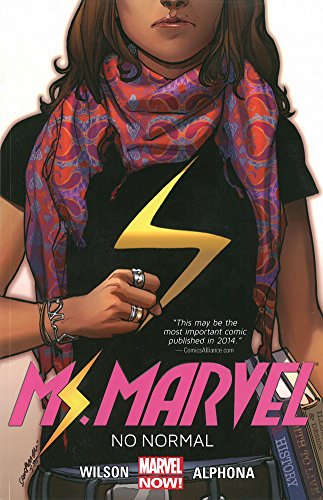
Wonder 2017: Exploding the Canon
Everyone loves the classics; that is why they are classics! However, there is nothing wrong with a little something new. This panel explores high-interest texts and mediums to engage readers deeply across standards, disciplines, nations, and worlds. The world is moving into the 21st century. Shouldn’t your reading list go with it? Keep your big two, but expand your horizons. The comics industry is expanding; this panel explains why your pull list should grow with it!
I wasn’t completely sure what to expect from this panel. Going by the description, it sounded like it would be recommending titles outside of the Big Two, Marvel, and DC. Not being very satisfied with their titles recently, I was interested to see what the panel would cover. The panel turned out to be something completely different.
ADVERTISEMENT
ADVERTISEMENT
 The panel was moderated by Brandon Matsalia, an English adjunct professor at San Bernardino Valley College. The panelists were Vanee Matsalia, an English teacher in the San Bernardino School District (who is married to Brandon); Kai Charles, a blogger for Black Girl Nerds; Madeleine Holly-Rosing, writer and artist of the comic book series Boston Metaphysical Society; Jaquay Durant, a middle school teacher of Language Arts; and Davette See, a renaissance woman of sorts who has worked in several fields.
The panel was moderated by Brandon Matsalia, an English adjunct professor at San Bernardino Valley College. The panelists were Vanee Matsalia, an English teacher in the San Bernardino School District (who is married to Brandon); Kai Charles, a blogger for Black Girl Nerds; Madeleine Holly-Rosing, writer and artist of the comic book series Boston Metaphysical Society; Jaquay Durant, a middle school teacher of Language Arts; and Davette See, a renaissance woman of sorts who has worked in several fields.
Matsalia started the panel by defining what “The Canon” was. Canon is what was always taught. It is using the same stories and tropes, i.e., “the classics.” The problem with canon is that it doesn’t make room for others. By sticking with the canon, there is no room for new voices or perspectives. It emphasizes the difference between boys’ and girls’ stories, often putting the former above the latter. Canon defines the gatekeepers of genre, making it difficult to break past them. It does not allow for diversity, as it concentrates on a small area of literature. Canon isn’t bad, but it should be a starting point, creating a foundation that allows readers to move on. In comics, Marvel and DC are considered the industry’s canon.
 At the time of this panel, the website Bleeding Cool ran an article about Marvel Comics’ VP of Sales David Gabriel’s claim that diversity in their titles was the reason for the sales slump the company had seen since October 2016. He laid the blame for this squarely on the market, claiming Marvel had heard it didn’t want any more new or female characters. But, as the panel pointed out, this claim didn’t take into account any of the other forces that were in play. If Marvel marketed their titles outside of their core audience, expanded the representation in the teams behind the books (in addition to the characters), or just plain wrote good stories, they might not have seen the sales slump.
At the time of this panel, the website Bleeding Cool ran an article about Marvel Comics’ VP of Sales David Gabriel’s claim that diversity in their titles was the reason for the sales slump the company had seen since October 2016. He laid the blame for this squarely on the market, claiming Marvel had heard it didn’t want any more new or female characters. But, as the panel pointed out, this claim didn’t take into account any of the other forces that were in play. If Marvel marketed their titles outside of their core audience, expanded the representation in the teams behind the books (in addition to the characters), or just plain wrote good stories, they might not have seen the sales slump.
Next Matsalia spoke about the gatekeepers of canon, exploring who they were and why they kept people out. Publishers were at the top, with their practice of using unpaid internships as the stepping stone to getting into the industry. It was pointed out that many people of color can’t afford to take a year off, making it a barrier to entry for them.
 Other fans can be gatekeepers as well. Madeleine Holly-Rosing gave the example of her comic Boston Metaphysical Society: Her comic is set in a Steampunk universe, and she spoke about how she was told by other creators in the genre that her work wasn’t “real steampunk” because it wasn’t set in England nor in the 1800s like most other works. Because she chose to work outside the “norms” of the fandom, her work wasn’t considered proper.
Other fans can be gatekeepers as well. Madeleine Holly-Rosing gave the example of her comic Boston Metaphysical Society: Her comic is set in a Steampunk universe, and she spoke about how she was told by other creators in the genre that her work wasn’t “real steampunk” because it wasn’t set in England nor in the 1800s like most other works. Because she chose to work outside the “norms” of the fandom, her work wasn’t considered proper.
Teachers were also named as gatekeepers. They teach and enforce the canon with the books they choose for their students. They use the same curriculum, teaching “the classics,” to continue the same way of thinking. They also continue the strong but misguided belief that comics aren’t “real literature.” As shown in the steampunk example, dedication to the canon can keep other voices out. But teachers as gatekeepers also have the most power to institute change. They can make representation a part of the curriculum. They can make diversity seem normal and start teaching real life. In this way, they prepare their students for the outside world and help them learn to be more empathetic to others. Holding to canon only silences the voices that need to be heard.
ADVERTISEMENT
ADVERTISEMENT
So where does this all lead to? A call to action to expand the canon. The panel had several suggestions for expanding it. Don’t rely on the “Big Two” or other big publishers. There are a lot of independent or “indie” comics out there, with many diverse voices and stories. Kickstarter, the crowdfunding platform, has become the third largest publisher of indie comics. Fans can continue to speak with their wallets by supporting titles with diverse characters or writing teams. And teachers can speak with their test scores. If a diverse curriculum results in higher test scores, other teachers and administrators are likely to take notice and start implementing it as well.
There was time for only a few questions. One audience member asked what the value of diversity was. The panel answered it was important for readers to see themselves in the stories. It makes the story more relatable and more personal. It also helps the majority to build empathy as it shows them other perspectives and shows that theirs is not the only one.
 A teacher in the audience spoke, saying they had to use Scott McCloud’s Understanding Comics in their curriculum as it seemed to be the only book higher-ups knew. They asked what other resources were available. Vanee answered by talking about what she did in her middle school classroom. She used comics in conjunction with the canon. Comics can supplement the reading and show different perspectives. It also helps get students to engage with the material. If the students are reading about Malala Yousafzai, then also have them also read Ms. Marvel. Comics often get reluctant readers engaged in the material and more interested in the prose reading. Teachers can also incorporate the comics into the curriculum. For middle school students, they have to learn to write narratives. One method is to have students add Malala to the first issue of Ms. Marvel and see how that would change the story. They learn to create narrative and plot.
A teacher in the audience spoke, saying they had to use Scott McCloud’s Understanding Comics in their curriculum as it seemed to be the only book higher-ups knew. They asked what other resources were available. Vanee answered by talking about what she did in her middle school classroom. She used comics in conjunction with the canon. Comics can supplement the reading and show different perspectives. It also helps get students to engage with the material. If the students are reading about Malala Yousafzai, then also have them also read Ms. Marvel. Comics often get reluctant readers engaged in the material and more interested in the prose reading. Teachers can also incorporate the comics into the curriculum. For middle school students, they have to learn to write narratives. One method is to have students add Malala to the first issue of Ms. Marvel and see how that would change the story. They learn to create narrative and plot.
While the panel turned out to be nothing like I expected, I was glad I chose to go to it. It was early on Sunday morning, so not a lot of people came to it, but it had a lot of great information, and even a little bit of levity, mostly provided by Brandon and Vanee (he’s DC, and she’s Marvel). It was a great start the last day of the con.
Filed under: Uncategorized
About Lori Henderson
Lori Henderson is a mother of two teenage daughters and an avid reader. She blogs about manga at her personal blog Manga Xanadu as well as contributing and editing for Manga Village. She blogs about all things fandom (mainly Doctor Who) at her other personal blog Fangirl Xanadu. She's been at it so for over 5 years now and counting!
ADVERTISEMENT
ADVERTISEMENT
SLJ Blog Network
One Star Review, Guess Who? (#202)
This Q&A is Going Exactly As Planned: A Talk with Tao Nyeu About Her Latest Book
Parsing Religion in Public Schools
Take Five: LGBTQIA+ Middle Grade Novels
ADVERTISEMENT

